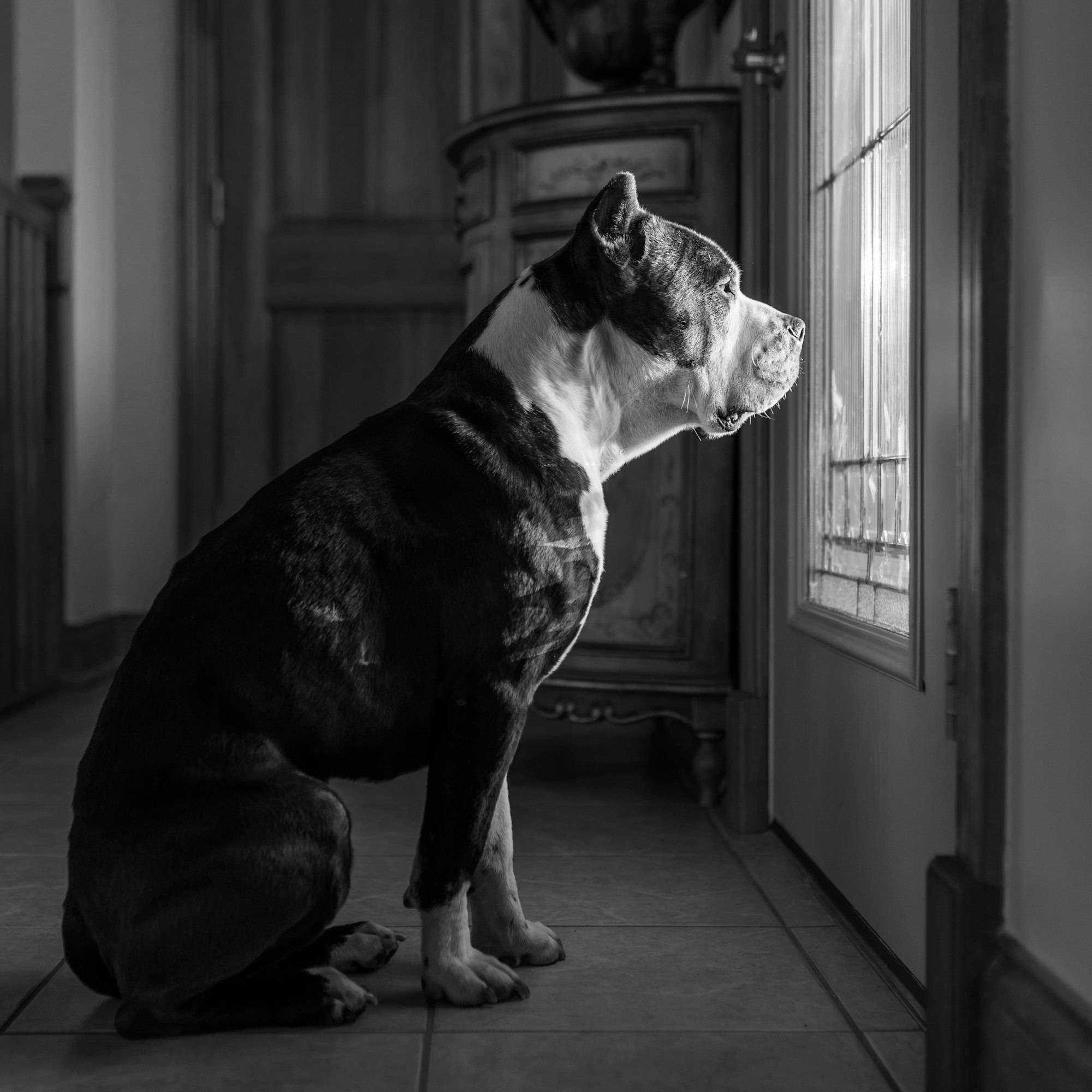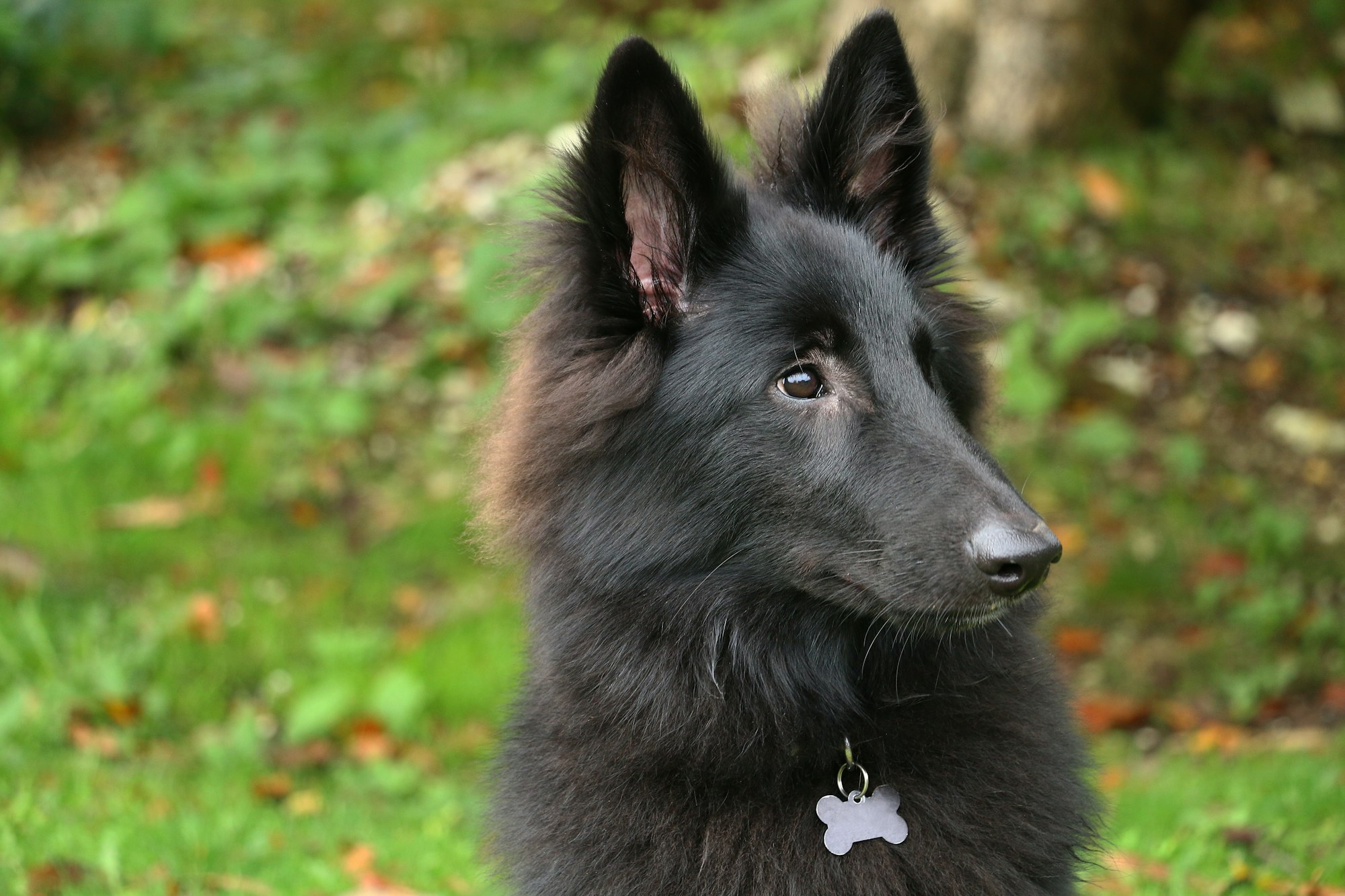In a world where security is a growing concern, having a guard dog by your side can provide a sense of safety and protection like no other. These loyal and courageous canines are more than just pets; they are vigilant protectors of your home and loved ones. In this comprehensive guide, we will delve into the world of guard dog breeds, their characteristics, training, and the responsibilities that come with owning one.
Guard dogs are a special category of dogs that have been selectively bred for centuries to safeguard property, livestock, and even humans. They possess a unique set of qualities that make them ideal for this role. But what exactly makes a good guard dog?

What Makes a Good Guard Dog?
When it comes to defining what makes a good guard dog, there are several critical factors that distinguish these exceptional canines. A good guard dog possesses a unique combination of traits and characteristics that set them apart as vigilant protectors of their owners and property.
Loyalty: The Foundation of Protection
Loyalty is the cornerstone of a great guard dog. These dogs forge deep bonds with their owners and are unwavering in their devotion. This loyalty translates into a strong desire to protect their human family, making them an ever-present shield against potential threats.

Courage and Fearlessness: Confronting Danger Head-On
A good guard dog is fearless in the face of danger. They exhibit a remarkable level of bravery that enables them to confront intruders or threats without hesitation. This courage is not reckless; it's a calculated response driven by their protective instincts.
Intelligence: The Ability to Assess and React
Intelligence is a crucial trait in guard dogs. They need to be able to assess situations, differentiate between friend and foe, and respond appropriately. Their ability to make split-second decisions can mean the difference between safety and danger.
Territorial Instinct: Defending Their Domain
Guard dogs are inherently territorial. They have a strong sense of ownership over their living space and will protect it vigorously. This territorial instinct makes them acutely aware of any unusual activity or intruders on their turf.
Physical Strength and Presence: Deterrence Through Appearance
A good guard dog is physically imposing. Their mere presence can be enough to deter potential wrongdoers. Whether it's their size, muscular build, or confident demeanor, their appearance commands respect and caution.
Alertness: Always On Guard
Guard dogs are perpetually alert. They have a keen sense of awareness that allows them to detect even the slightest changes in their environment. This vigilance ensures that they are ready to respond to any perceived threat swiftly.
Popular Guard Dog Breeds
Guard dogs come in various breeds, each with its unique set of qualities and characteristics. While there are many breeds capable of excelling in the role of a guard dog, some have consistently proven themselves over time. Here are a few of the most popular guard dog breeds:
German Shepherd: A Versatile Guardian
The German Shepherd is renowned for its intelligence, loyalty, and versatility. They are often employed in police and military work due to their exceptional training capabilities and unwavering commitment to protecting their handlers.
Rottweiler: Strength and Loyalty Combined
Rottweilers are known for their sheer strength and unyielding loyalty to their families. While they are often gentle with their loved ones, they are fierce protectors when faced with a potential threat.
Doberman Pinscher: Sleek and Protective
Dobermans are highly trainable and possess a natural protective instinct. Their sleek appearance may be deceiving, but underneath it lies a determined and vigilant guardian.
Bullmastiff: Gentle Giant Protectors
Bullmastiffs are gentle giants with a strong protective streak. They are excellent with families and excel at deterring intruders with their imposing presence.
These popular guard dog breeds embody the traits and qualities that make a good guard dog. While these breeds are well-suited for the role, it's essential to remember that individual temperament and training play a significant role in determining a dog's effectiveness as a guardian. Proper training and socialization are key to harnessing their innate protective instincts and ensuring they become the loyal protectors they were bred to be.
Characteristics of a Guard Dog
What are the key traits that define a guard dog? Let's take a closer look.
1. Loyalty: Guard dogs are incredibly loyal to their families. They form strong bonds and will go to great lengths to keep their loved ones safe.
2. Trainability: These dogs are intelligent and can be trained effectively. Proper training is crucial to harness their protective instincts.
3. Protective Instinct: Guard dogs have an innate protective instinct. They can sense danger and react swiftly to protect their territory.
Training Your Guard Dog
Training is vital to ensure your guard dog is effective and well-behaved. Here are some training tips:
1. Basic Commands: Start with basic commands like sit, stay, and come. These commands establish your authority and build a foundation for more advanced training.
2. Socialization: Expose your dog to different people and situations to ensure they are well-adjusted and confident.
3. Obedience Training: Enroll your dog in obedience classes to ensure they respond to your commands reliably.

Guard Dog vs. Watchdog
It's crucial to distinguish between guard dogs and watchdogs, as they serve distinct roles in safeguarding your home and loved ones.
Guard Dog: The Sentinel Protector
A guard dog is a highly trained and protective canine that actively defends property and people. They are trained to confront threats head-on and take action when necessary. Guard dogs, such as German Shepherds and Rottweilers, are always on alert and ready to respond to potential dangers.
Guard dogs are typically used in high-security settings, like police work, and require specialized training. They are a formidable deterrent to intruders due to their size, strength, and protective instincts. Owning a guard dog involves a significant commitment to training, socialization, and legal responsibilities.
Watchdog: The Early Warning System
A watchdog, on the other hand, serves as an early warning system. Breeds like the Miniature Schnauzer or Chihuahua are often employed as watchdogs. Their primary role is to alert their owners to potential threats through barking or vocalization.
Watchdogs do not engage intruders physically but provide valuable time for homeowners to assess the situation and take appropriate action. They are typically more suited to family environments and require less specialized training than guard dogs.
Understanding the difference between guard dogs and watchdogs is essential when considering your security needs. While both play vital roles in protection, your choice should align with your specific requirements and the level of training and responsibility you can commit to.
Guard Dogs and Family Life
Guard dogs and family life can indeed coexist harmoniously, but it requires careful consideration and responsible ownership.
Family-Friendly Guard Dogs
Many guard dog breeds are inherently family-friendly and can form strong bonds with children and adults alike. Breeds like the Bullmastiff and Boxer are known for their gentle nature and protective instincts, making them excellent choices for families.
Socialization Is Key
Proper socialization is vital when introducing a guard dog to a family environment. Early exposure to various people, animals, and situations ensures they develop well-adjusted and confident personalities. Socialization helps mitigate any potential aggression or fearfulness.
Training for Family Life
Guard dogs need specialized training not only for protection but also for proper behavior in a family setting. Obedience training and commands like "leave it" and "quiet" are essential to ensure their interactions with family members and guests are positive and controlled.
Supervision and Responsibility
Owning a guard dog in a family setting requires vigilant supervision, especially when young children are involved. While these dogs can be loving and protective, their size and strength mean that responsible ownership is paramount to prevent accidents.
With the right breed selection, early socialization, and consistent training, guard dogs can be cherished family members and trusted protectors of your loved ones.
Legal Aspects of Owning a Guard Dog
Owning a guard dog entails legal responsibilities that vary by location. Understanding these aspects is crucial to being a responsible owner.
Licensing and Registration
In many areas, owning a guard dog may require licensing or registration. This process often involves proving that your dog has received proper training and is well-behaved.
Liability for Your Dog's Actions
Guard dogs are trained to protect, but they must also be under control at all times. Owners can be held liable for any harm caused by their dogs, so ensuring they obey commands and are not a threat to others is essential.
Breed-Specific Legislation
Some regions have breed-specific legislation that may restrict or regulate certain guard dog breeds. It's crucial to be aware of any breed-specific regulations in your area and comply with them.
Public Safety Measures
Guard dog owners should take precautions to prevent their dogs from escaping or being a danger to the public. Proper fencing, secure leashes, and muzzles, when necessary, are essential safety measures.

Insurance Considerations
Insurance companies may have specific policies or requirements for homeowners with guard dogs. It's advisable to inform your insurance provider and ensure you have appropriate coverage.
Common Misconceptions
Guard dogs are often shrouded in misconceptions and myths. Clarifying these misunderstandings is crucial for anyone considering the addition of a guard dog to their family or property.
Misconception 1: Guard Dogs Are Always Aggressive
One of the most common misconceptions is that guard dogs are naturally aggressive. In reality, well-trained guard dogs are not aggressive but rather highly protective and discerning. They respond to threats with controlled behavior, and aggression is a last resort.
Misconception 2: Guard Dogs Cannot Be Family Pets
Contrary to belief, many guard dog breeds are excellent family pets. They can be loving, gentle, and loyal to their families while maintaining their protective instincts. Proper training and socialization are key to ensuring they coexist harmoniously with children and adults.
Misconception 3: Guard Dogs Are Untrainable
Guard dogs are highly trainable. Their intelligence and willingness to please make them receptive to training. In fact, training is essential to harness their protective instincts effectively and ensure they respond to commands.
Misconception 4: All Large Dogs Are Suitable as Guard Dogs
While size can be intimidating, not all large dogs make good guard dogs. Breed temperament, training, and the individual dog's personality play a more significant role in their effectiveness as protectors.
Misconception 5: Guard Dogs Don't Require Socialization
Socialization is crucial for all dogs, including guard dogs. Proper socialization helps them become well-adjusted, confident, and able to distinguish between threats and non-threats.
Responsibilities of Guard Dog Owners
Owning a guard dog like a Cane Corso Husky Mix involves a unique set of responsibilities that go beyond those of conventional pet ownership. These breeds are often highly intelligent, strong, and alert, requiring specialized training and socialization to fulfill their protective roles effectively.
Firstly, investing in proper training is essential. A well-trained guard dog can distinguish between potential threats and harmless situations, ensuring that they act appropriately.
Secondly, socialization is vital. Unlike other pets that may primarily seek companionship, guard dogs need to be exposed to various people and scenarios to develop the temperament necessary for guarding.
Thirdly, healthcare can't be compromised. A guard dog should be physically fit to carry out its duties, which means regular vet check-ups are a must, along with a well-balanced diet and exercise regimen.
Lastly, the owner must adhere to any local laws and regulations governing the ownership of guard dogs, which may include having proper fencing, signs indicating the presence of a guard dog, and even specific insurance coverages.
Being a responsible owner of a Cane Corso Husky Mix or any other guard dog requires dedication to these key areas to ensure both the safety of the dog and the community it serves.
Specialized Training
Guard dog owners must invest in specialized training to ensure their dog's protective instincts are properly harnessed and controlled. This training should focus on obedience, response to commands, and discernment.
Socialization
Socialization is vital to prevent aggression and fearfulness in guard dogs. Owners should expose their dogs to various people, animals, and situations from an early age.
Safe Containment
Guard dogs should be securely contained to prevent them from becoming a threat to the public or escaping and causing harm. Adequate fencing and safe confinement measures are essential.
Legal Compliance
Owners must be aware of and comply with local laws and regulations related to guard dog ownership. This may include licensing, liability insurance, and adherence to breed-specific legislation.
Proper Care and Health Maintenance
Guard dogs require regular veterinary care, a balanced diet, and exercise to maintain their physical and mental health. Responsible owners ensure their dogs are in peak condition.
Finding a Reputable Breeder
Choosing a reputable breeder is crucial when acquiring a guard dog to ensure the dog's health and temperament.
Research and References: Begin by researching breeders thoroughly. Seek recommendations from experienced dog owners, breed clubs, or veterinarians. A reputable breeder should be willing to provide references from previous buyers.
Visit the Breeder's Facility: Visit the breeder's facility in person to assess the living conditions of the dogs. The environment should be clean, well-maintained, and the dogs should appear healthy and well-cared for.
Ask Questions: Ask the breeder about their breeding practices, health testing, and socialization efforts. A responsible breeder should have a deep knowledge of the breed and be able to answer your questions confidently.
Health Testing: Ensure that the breeder conducts health testing on their breeding dogs to screen for hereditary conditions common in the breed. This helps reduce the risk of inherited health issues in your future guard dog.
Temperament Assessment: A reputable breeder should be able to provide insights into the temperament and behavior of their puppies. They should match you with a dog that suits your needs and lifestyle.
Cost of Owning a Guard Dog
Owning a guard dog involves various costs that extend beyond the initial purchase price.
Purchase Price: The purchase price of a guard dog from a reputable breeder can range from hundreds to several thousand dollars, depending on the breed and lineage.
Training Costs: Specialized training for guard dogs is essential and can be a significant investment. Professional trainers can help ensure your dog is well-prepared for their protective role.

Medical Expenses: Guard dogs require regular veterinary care, vaccinations, and preventive medications. These ongoing medical expenses should be factored into your budget.
Food and Supplies: High-quality dog food, grooming supplies, toys, and other essentials contribute to the overall cost of ownership.
Insurance and Legal Costs: Liability insurance and compliance with local laws may involve additional expenses.
Maintaining a Guard Dog's Health
Maintaining the health of a guard dog is crucial to their effectiveness and longevity.
Regular Vet Check-Ups: Schedule regular veterinary check-ups to monitor your dog's overall health and address any potential issues promptly.
Proper Nutrition: Feed your guard dog a balanced diet that meets their specific nutritional needs. Consult with your veterinarian for dietary recommendations.
Exercise and Mental Stimulation: Guard dogs require regular exercise and mental stimulation to stay physically and mentally healthy. Engage them in activities that challenge their intelligence and energy.
Grooming and Hygiene: Regular grooming and hygiene practices, including nail trimming and dental care, are essential for your dog's well-being.
Monitoring Behavior: Keep a close eye on your guard dog's behavior for any signs of illness or distress. Early detection of problems can lead to more successful treatment.
Conclusion
Guard dog breeds have been an integral part of human society for millennia, offering not just companionship but also a robust line of defense against potential threats. We underscores the importance of understanding the specific attributes, training requirements, and behavioral traits of these breeds. Whether one seeks a deterrent, an alert system, or a physical protector, there's a suitable breed for every need.
However, it's essential to remember that behind every disciplined guard dog is consistent training, love, and trust. As with all dogs, they should be treated with respect and care, ensuring they are well-socialized and integrated into family life. Ultimately, the journey of choosing and raising a guard dog is as much about securing one's home as it is about fostering a deep, lifelong bond.
FAQs
Q1. Are guard dogs suitable for apartment living?
Yes, some guard dog breeds can adapt to apartment living, provided they receive sufficient exercise and mental stimulation.
Q2. Do guard dogs require specialized training?
Yes, guard dogs benefit from specialized training to ensure they respond appropriately to potential threats.
Q3. Can I adopt a guard dog from a shelter?
Yes, it's possible to find guard dog breeds in shelters. However, thorough training and evaluation are essential.
Q4. Are guard dogs aggressive by nature?
Guard dogs are not inherently aggressive, but they are protective. Proper training and socialization are key to managing their behavior.
Q5. How do I introduce a guard dog to visitors safely?
Introduce visitors slowly and under controlled circumstances, allowing the dog to become comfortable with their presence.
In this guide, we've explored the world of guard dog breeds, their characteristics, training, and responsibilities. Owning a guard dog is a commitment that comes with rewards and responsibilities, and with the right knowledge and care, you can have a loyal protector by your side.






